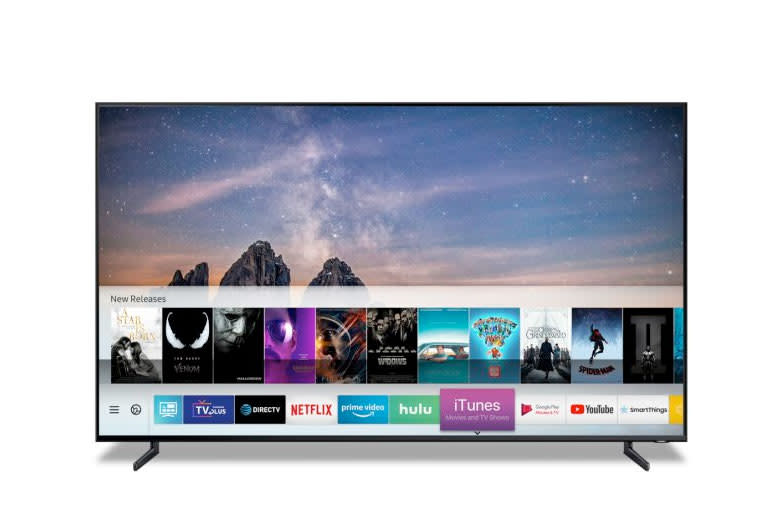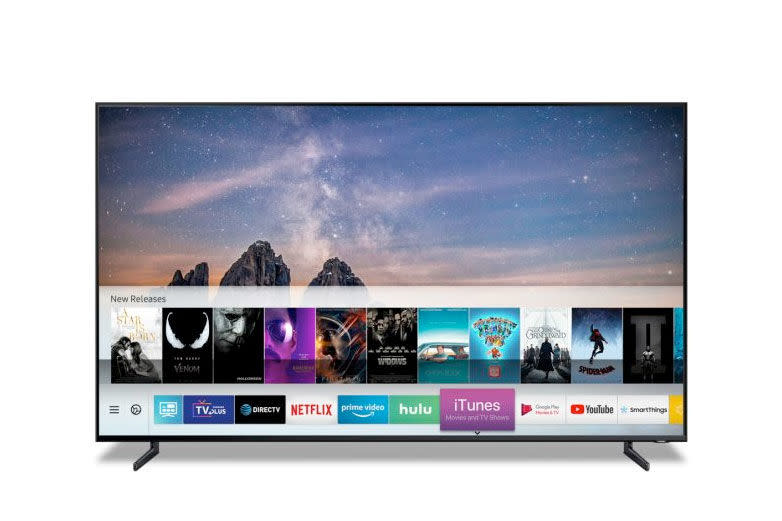Apple's TV service can't succeed without outside help
Expect to see plenty more TVs and set-top boxes welcoming iTunes and AirPlay 2.
"Hell froze over." That's what the somewhat hyperbolic ad announcing that iTunes, and by extension the iPod, would now run on Windows said. In the earliest of days, the iPod was purely for the Mac faithful. But the move to Windows meant that the music player went from niche delight to mainstream success, and 300 million sales later, it was clearly the right decision.
Apple is normally a company that focuses on depth rather than scale, charging a premium for devices and not sharing its toys with others. But today, Samsung announced that its 2018 and 2019 Smart TVs would support AirPlay 2 or iTunes movies and TV shows. Now, you don't have to own an Apple TV to get access to the company's media platforms, and there's nothing to suggest this is an exclusive deal either.
That brings us neatly to Apple's oft-rumored TV service, which is touted as a competitor to Netflix, Amazon Prime and the forthcoming Disney+. We know that the company has signed deals with a number of big names to create shows, including Steven Spielberg and Steve Carrell, and it's even bagged a Peanuts revival. Rumors are that we're only a few months away from a launch.
But Apple has a problem: A TV service needs to run anywhere its users want to watch. A billion iPhones and iPads out in the wild are useless if most people would rather kick back in front of their 60-inch TV. And the Apple TV lags behind Roku and Chromecast in the US Smart TV market. The company needs to get its streaming-TV service on every screen it can, and it can't do that without help from others.
Don't be surprised if you see a number of companies pledging to add AirPlay 2 and iTunes access in the near future. Given that people buy Roku players because they're platform agnostic, it would make sense for Apple to plant its flag there as well. It'll be interesting to see if Amazon and Google, which both have TV ambitions of their own, embrace Apple as warmly.
Sixteen years after the devil had to order an insulated jacket and ski boots, Apple is once again focusing on expanding its reach. And given what happened the last time, this might be the thing the company needs to juice its bottom line.


